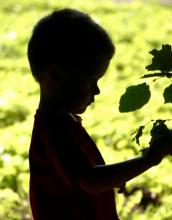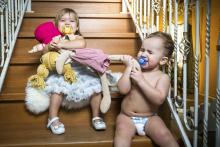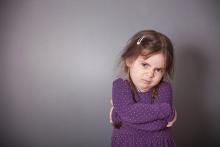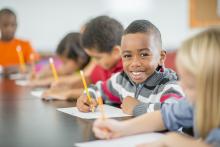
Parent, Educational Researcher, Writer
Sanya Pelini holds a Ph.D. in educational research from Université Paris-Est Créteil in France. She transforms educational research into practical tools and resources for parents on her blog Raising-independent-kids. She is the author of the Ebook Fifteen Days to Independent Kids.
Although discipline and punishment are commonly perceived as synonymous, there’s a difference between the two terms: while discipline focuses on changing behaviour, punishment is defined as “suffering, pain, or loss that serves as retribution” or as “severe, rough or disastrous treatment”.
Much evidence suggests that punitive environments (those in which corporal and harsh verbal punishment are common) are not effective for learning.
One study found that punitive environments led to unhappy children with low self confidence and lower social and academic competence.
As far back as I can remember, our son has wanted to be Harry Potter.
Over the years, words such as “Expecto Patronum”, “Expelliarmus” and “Avada Kedavra” have become part of his vocabulary and we have all learnt to humour his attempts at becoming invisible.
Children all have models, and these models influence their behaviour.
“Your son’s friend doesn’t want to share a toy. Your son fights him and grabs the toy”
“Your daughter bites and pulls other children’s hair in day-care”
“Your child throws a tantrum every time he doesn’t get what he wants”
Familiar scenarios?
Dealing with an aggressive child is never easy because aggressive behaviour is often accompanied by negative and destructive actions and frequently appears as a voluntary intent to hurt or frighten.
Dealing with a child prone to anger can feel like being on a roller-coaster ride. The highs can be exceptionally high, and the lows can make you weep. While anger in children is often an expression of powerful emotions such as frustration, sadness and anxiety, failing to help your child get these emotions under control can have disastrous results.
It is a great tragedy indeed that we are programmed even before we leave our mothers’ wombs. We quickly learn that, to show our worth, we must do certain things, be certain things and buy certain things. The greatest tragedy yet is perhaps the assumption that one’s worth is somehow tied to how much one owns. It is a programmed world.
Activists of the slow revolution argue that the world is in need of a voluntary simplicity revolution. As Duane Elgin asserts, voluntary simplicity is not about living in poverty; it is about living with balance.
There is much evidence to suggest that children’s ability to persist through difficulty predicts social and educational outcomes. One study found that persistence in 5/6 year olds significantly predicted their reading and math achievement between kindergarten and early adolescence.































